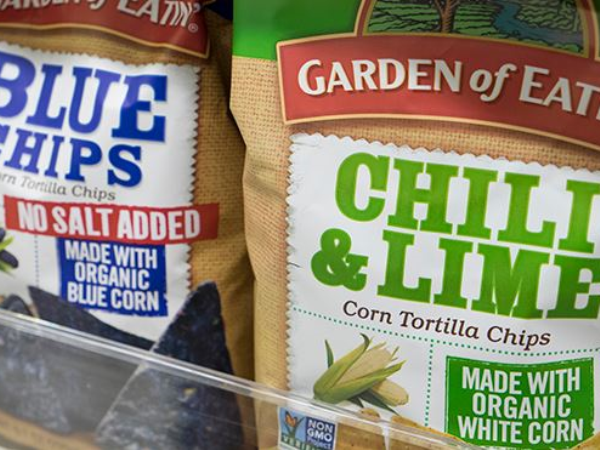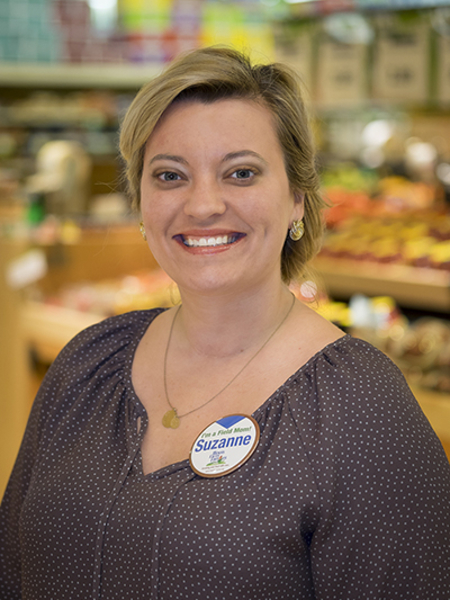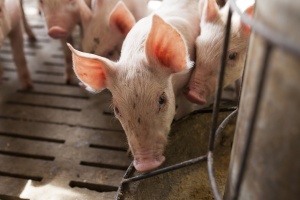Why GMOs Aren’t the Enemy
Prior to visiting the Jeschke’s farm for our 3rd Field Mom trip, I thought it best to do a bit of research in advance of our outing. You see, the Jeschke family are farmers that grow both corn and soybean crops, both of which make up two of the largest crops grown in the US and both of which use Genetically Engineered (GE) seeds. As a new mom and conscious consumer, I have always prided myself on researching the food I feed myself & my family. One area, however, that has always been “grey” to me is GE foods and Genetically Modified Organisms (GMOs). So, I Googled. I went on the internet, typed in GMOs and read what I could on both sides of the coin so I could be in a better position to ask pointed questions once I visited the farm. I was mostly interested in the articles that touted GMOs as “the enemy”; I wanted to know why the better part of society felt they were so terrible.
For those who don’t know, GMOs are organisms whose genetic material, or DNA, has been altered by using Genetic Engineering (GE) techniques. The aim is typically introduce a new trait which does not occur naturally in the species. The reasons for doing this are a bit more varied; resistance to pests, disease, or environmental conditions just to name a few. Prior to my involvement in the program, my knowledge on GMOs in general was limited, but what I did “know” from everything I saw on TV and read online, was that they should be avoided at all costs. That finding products that are “GMO free” is the best way to ensure your family’s continued good health. Why this should be done was a bit less clear, only that they should be avoided at all costs. So, imagine my surprise when I discovered that the list of commercially available GM products on the market today was much shorter than what I had been previously led to believe. To date, that list consists of: corn, soybeans, cotton, canola, alfalfa, sugar beets, squash & papaya. Based on my own internet research on the subject, much of the controversy over GMOs in our food stems from claims of negative long-term health issues such as allergies, GI disorders, accelerated aging, and even cancer. So, what gives?
It’s a lot to take in, and prior to my involvement in the Field Mom program, the data and information I thought was legitimate and valid, now gave me pause. If nothing else, it has taught me not only to obtain information from reliable sources (and how to find it), but to also read through some of the more questionable articles with a more critical eye. One thing I did notice was that in every single article posted touting the negative effects of GMOs and why they should be avoided, when listing the reasons, always included terms like “could possibly lead to,” “can” and “may.” And the use of inductive reasoning in so many of these articles didn’t sit right with me, either. One of the worst examples I found was a website claiming because the rate of autoimmune diseases has gone up since the 90’s, which was also the same time GM products were introduced in our grocery stores, then GMOs must be the cause of this. Really? Do people seriously believe this stuff? You bet they do, and I used to be one of them.
So, what did I walk away from the Jeschke’s having learned and what is the bottom line? Well, the answers are still unclear, at least to me anyway. But there are a few things I do know for sure and things that, once I discovered, were true “Aha” moments for me. While the list of commercially available GM products is short, one thing that is in many of the foods available to the public is corn. And corn or corn products (corn oil, high fructose corn syrup, etc) is found in the vast majority of the processed foods that line our shelves, and in many cases, our pantries.
From all the research and studies done (and not by corporations that have “something to gain” by declaring them safe) GMOs pose no greater risk to human health than non GM products. From what I can garner, no one has ever died from eating too many fruits, vegetables, or wholesome foods in their true, whole form. What I do know is that many people have died from eating too many high fat, high sugar and heavily processed foods. So, perhaps instead of putting so much focus on whether the cookies, mac & cheese or chips we’re feeding our families are “non-GMO”, we should be more focused on feeding our families more nutritious and healthful foods. Maybe the link to the many illnesses like heart disease, obesity and GI issues has more to do with the high fat, high sodium and countless preservatives found in these items and less to do with the fact they’re made with GM seeds.
What I also learned was that the main reason the US has not opted to label foods containing GMOs is that in doing so will lead to an insinuation to consumers that products containing GMOs should be avoided and are ultimately bad. While I can’t say that I know for certain there are no negative effects that can stem from GMOs, I also haven’t found sufficient or reliable evidence that says it is. What I can say is that, while my intentions were good, I feel duped into believing I should buy a certain way (organic, GMO-free) without understanding why I was doing so, or was misinformed about what the terms really mean. Labeling our foods in this way will only continue to feed into a misinformed culture. It made me angry and I vowed that I would make it my business to be a smarter consumer, if nothing else.
And lastly, but absolutely most important in my particular situation, is the use of GM crops in medicine. At the age of 7 I was diagnosed with Type 1 (or Juvenile) Diabetes. For the last 26 years I have relied on synthetic insulin to keep me alive, first through injections and now through an artificial organ known as an insulin pump. I am now 33 years old and I am proud to say I am in fantastic health. In my case anyway, the constant use of synthetic insulin over the last 27 years has done nothing but benefit me. So, while many may still be on the fence as to whether GMOs are safe, whether they’re a threat, or they are sitting somewhere in between, I know for this family anyway, our focus will certainly lie elsewhere.











0 Comments